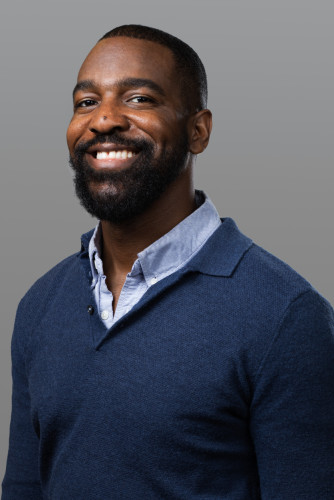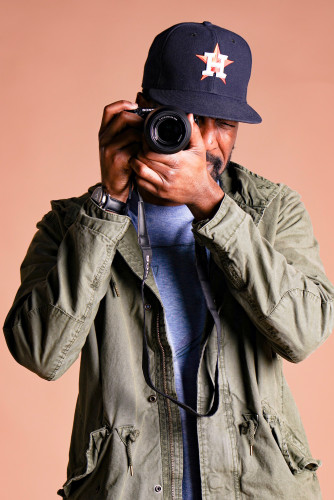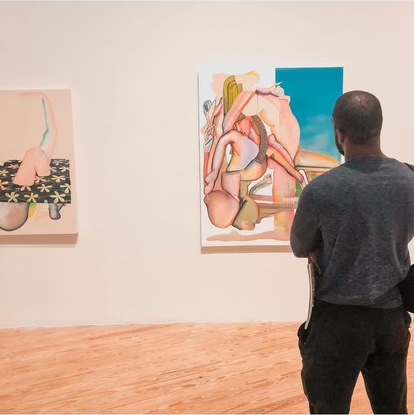"Sewanee is just one of those special places—it's an experience that doesn't really end."

Fred Rhodes Jr., C’08, didn’t set out to enroll in a small liberal arts college. “I thought I’d go to a larger school, because I’m from a small town,” he says. Growing up in Fairhope, Alabama (population: about 24,000), Rhodes envisioned pursuing his undergraduate degree in Atlanta, Raleigh-Durham, or Miami—but a visit to Sewanee in early 2004 changed his mind. “I was blown away by the campus environment,” he says. “The Domain is one of the most beautiful places, I’d argue, in the world, especially for a four-year education.”
Rhodes now lives in Houston, Texas, where he works as a freelance business consultant, but he stays in close touch with Sewanee through his service as a trustee and a participant in Beyond the Gates, a career-readiness program that pairs juniors and seniors with alumni mentors. He is also a founding member of the Benjamin Network, a Sewanee organization that empowers and celebrates Black alumni, and he’s a regular Sewanee Fund donor. “Sewanee is just one of those special places—it’s an experience that doesn’t really end,” he says. “You’re always connected to the school and to the community.”
Football initially put Sewanee on Rhodes’ radar. In 2003, former University football coach Blaine McCorkle visited Rhodes’ high school. Though Rhodes and McCorkle didn’t connect at the time, Rhodes’ high school coach encouraged him to explore the Sewanee brochures that McCorkle dropped off—and mentioned that Rhodes’ mother would appreciate Sewanee’s strong academic curriculum. “My mom is the reason why I’m academically inclined,” Rhodes says. “She dropped out of college when she became pregnant with me at 19. So, she was very adamant about me finishing college and earning a degree—multiple degrees if I could.”
Though Rhodes was a dedicated high school athlete, he says that athletic programming wasn’t a priority in his college selection process. “Football is really good at keeping you disciplined and regimented, but I never wanted to pursue it as a career. I wanted to [attend a college] where academics was the focus.” At Sewanee, he quickly found his academic calling as an English major. In particular, he credits Nick Williams Professor of English William Engel with sparking a passion for the discipline. “I took English 101 with Dr. Engel, and I really don’t know how to describe it—I’d never been given so much responsibility and so much guidance at the same time,” Rhodes says. “The energy that he brings to the classroom is infectious.”
In fact, Rhodes says, the interests and skills he picked up through Engel’s instruction remain an influential part of his daily life. “He taught me that you’re not going to like reading if you don’t enjoy what you read.” Recently, Rhodes purchased Engel’s book, Education and Anarchy, and he also visits Engel’s website regularly. Rhodes says he finds Engel’s teaching philosophies, outlined on the site, especially helpful. “In my world of work, I feel like I’m an educator. Education is a large component of sales.” In talking with potential clients, he notes, “I’m not selling you something. I’m educating you about something I’ve researched that will help you do your job better or improve your business.”

Like many college athletes, Rhodes gained time-management experience while juggling coursework, practices, and games. At Sewanee, “I did a lot of reading on buses and planes.” Sewanee football took him to Terre Haute, Indiana; Danville, Kentucky; Colorado Springs, Colorado; and Jackson, Mississippi, among other places, and it necessitated his first plane trip. “We flew from Nashville to Houston, and then Houston to San Antonio,” he says. “It was terrifying.” Adding to an already hefty extracurricular load, Rhodes served as president of Gamma Sigma Phi, spent two years on the men’s track and field team, and had a work-study position at duPont Library. When it came to balancing his busy schedule, he acknowledges, “Some days were better than others.”
Following graduation, Rhodes earned an MBA from Lenoir-Rhyne University in Hickory, North Carolina. Business school might seem like an unconventional path for an English major, but Rhodes says he views his undergraduate and graduate degrees as complementing each other. “At Sewanee, I was more right-brained, and I wanted a graduate program that would strengthen my left-brained side.” Looking back, he says he wishes he had started a business while at Sewanee—specifically, a fashion brand. “Even if it had failed, [it’s helpful to] go into a job interview saying, ‘Hey, I started a company, and it didn’t work out, but here’s what I learned.’”
Rhodes says he appreciates Beyond the Gates, in part, because it enables him to counsel students in maximizing their time on the Mountain. As a former student participant, he has seen both sides of the program. “It puts you in a very advantageous position as a student who’s looking to go into the professional world.” Joining the University’s Board of Trustees, he says, has also created opportunities for guiding the Sewanee community. “It’s a new way to serve the University.”
Whitney Franklin, executive director of the Sewanee Fund and advancement services, says servant-leadership is inherent in Sewanee philanthropy. “One of the University’s guiding aims is to cultivate leaders who shape their communities through acts of service. Sewanee Fund donors do this with every single gift they make—they steer Sewanee’s future while giving back.”
Rhodes primarily directs his gifts to Sewanee’s Division of Diversity, Equity, and Inclusion (DEI) and to Arts Across Campus. At one stage of his career, he started a company that trained businesses in implementing DEI processes. “I think DEI is a wildly important initiative at any company,” he says, adding it’s “not just about race or class—it’s neurodiversity.” Ultimately, he says, “I think diversity, equity, and inclusion creates a playing field where [companies can] find the best people and create an environment where everyone wants to show up and give their best.”
Similarly, Rhodes says, art can be a powerful motivator. “I don’t think art is a luxury—I think it’s a necessity. It helps us create a better society because artists often push the envelope and challenge us to do something new and different.”

In addition to his Sewanee leadership, Rhodes serves on the Board of Directors for DiverseWorks, a Houston nonprofit that commissions artists to create and present unconventional works, including exhibitions and performances. He’s also in the process of filming a mini-documentary about a friend who’s a musician. Rhodes says he never tires of hearing people’s stories. “I can listen to anyone who cares about a topic. I don’t care what it is—beekeeping, basketball, sewing, collecting stamps or quilts … anything.”
Listening to people—and looking out for them—is central to Sewanee life, as Rhodes sees it. He cites Eric Benjamin, C’73, Sewanee’s former director of multicultural affairs for whom the Benjamin Network is named, as an important mentor who championed and displayed generosity of spirit. “Up until the end of his life, his door was always open.” Giving to the University, Rhodes says, pays tribute to Benjamin and other Sewanee sources of inspiration. “The community at Sewanee is just second to none. That’s enough for me to ask, ‘How can I support someone else?’ Because where would I be without the support I got?”

